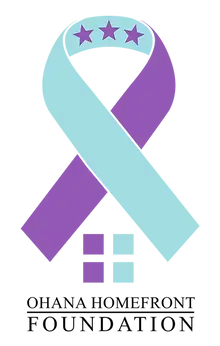Sometimes life can be overwhelming.
The constant demands of day to day living make it hard to catch our breath. Work, family, sports practices, being at home with small children, sick children and the list goes on and on. This can be especially exhausting when one partner is away training or deployed and “regular stuff” is left to be taken care of day in and day out. The days feel long and, at times, even like there is no end in sight.
We all have a window of tolerance or a capacity to handle situations that life throws at us. At times our window can feel like its closing and there is little room for additional stressors. Things such as past trauma, overextended schedules, overwhelming feelings and so many other factors contribute to a window that is smaller than it used to be.
It’s okay to acknowledge to yourself and others that you are not feeling your best. Most of us at one time or another have felt this way and did not want to discuss it with anyone because we didn’t want to burden others with our problems. It’s okay to not be okay.
This is where coping skills come in! This article discusses ways to increase that window and get a little “space” into your everyday life.
Identify and understand your triggers.
Triggers are things that cause you to act or feel a certain way. Understanding these reactions can help you manage them in the future. Triggers can be events, situations, discussions and even people. Exploring what things commonly make you feel stressed, anxious or angry while a loved one is away can inform decisions on what things you spend time and energy on!
Find a safe space to discuss your feelings.
Allowing yourself to discuss your feelings with a trusted friend or family member is a strength! Sometimes there are no words that can express what we are feeling. Our bodies feel heavy, nervous, scared or worn out. Coping skills help and calm the body and provide a space in between a difficult feeling and a reaction. Some examples of coping skills are as follows:
- Journaling. Start by noticing what you are feeling, naming your feelings and accepting the emotions as they are in the current moment. This can include gratitude journaling, free writing or even poetry.
- Breathing. This can be something as simple as taking a deep breath in through your nose and out through your mouth several times until you find your body is calming down.
- Mindfulness practice – Guided meditations, relaxation music for sleep, meditation. YouTube is a great resource to use when you are looking for something that is right for you. This can be a five-minute guided meditation in the morning or soothing sleep music at night. The key is finding what works for you and gives you noticeable sense of calm.
- Exercise. Finding time in your schedule to move your body in some way. This does not have to be a hard workout or even something that you do every single day. Taking a walk alone, with a friend or with your favorite furry companion is a quick way to move your body and get outside when its possible. Talking to your doctor or seeking medical recommendations are always advised before starting a new routine.
- Being kind to yourself/ Self Care: For example, setting small goals and celebrating achievements, making time to do something you love once and a while, accepting a compliment from a friend and asking for a break when you need it.
- Seeking professional help. Therapy can help with managing emotions, process current or past events, and provide general support. To find a professional in your area you can reach out to military one source or find a provider that takes TRICARE.
This time is a difficult one but it doesn’t have to be impossible! Self care and a support system, whether its coping skills or trusted friends, can make a world of difference. Ohana Homefront Foundation is here to help you get through these tough moments! There are licensed professional counselors available to help you navigate trying times or just get a little support from people who understand and many who have lived this life alongside of you.
Reach out!
-Written by Brandy McVicker, OHF Counselor
For more articles on coping during a deployment, check out Experience Blogger, Sarah Robichan’s article https://armywifenetwork.com/how-to-cope-with-milspouse-anxiety








Yes to all of the above, Brandy! I’ve actually recently started a mindfulness-based stress reduction course (MBSR) and it’s pretty incredible. Folks have always told me to be “more mindful” but I never understood what that meant till doing this course (I’ve realized it does not mean to think about things more haha!) Thanks for sharing, and so excited to have OHF sharing on AWN!